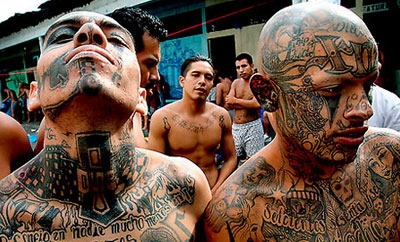El Salvador police have said rising homicides indicate the country’s gang truce effectively no longer exists, raising questions as to whether the violence is because gang leaders have abandoned the pact, or have lost control of the ranks.
Rigoberto Pleites, director of El Salvador’s National Police (PNC), told media police believe the two-year-old truce between the rival MS13 and Barrio 18 street gangs “technically no longer exists, given the increase in homicides in the past months,” reported El Diario de Hoy.
However, Pleites added it was not for the police to pronounce the death of the truce, and whether it has a future depends on decisions made by the gang leaders.
In El Salvador, 484 homicides were reported between January 1 and March 1 this year, an average of eight per day. According to Pleites, street gangs were responsible for between 60 to 70 percent of the murders, and most of those were disputes between the groups.
InSight Crime Analysis
The gang truce in El Salvador has been slowly disintegrating for some time. Ricardo Perdomo, El Salvador’s Security and Justice Minister, said this past November the truce was all but dead due to a rising murder rate, speculation that was fueled by the unearthing of mass graves linked to the gangs.
SEE ALSO: El Salvador’s Gang Truce: Positives and Negatives
However, for the police to unofficially pronounce the truce dead is a watermark in proceedings, especially since the truce has already been all but abandoned by political leaders ahead of elections. It is likely that all that now remains is for the truce’s supporters and the gang leadership to admit the pact’s failure, and for the post-mortem into its death to begin.
In the initial period of the truce, imprisoned leaders demonstrated a surprising ability to control mid-level commanders of semi-independent local units, or “clicas,” and lower overall violence. The steadily rising homicides, therefore, raise questions as to whether these leaders no longer retain the obedience of the clicas and whether the individual factions have broken ranks and are acting independently.
If this is the case then it may represent a breakdown of the command hierarchy. Alternatively, it could be that the initial obedience was artificial and only in response to gang leaders’ selling the benefits of the truce to clica heads. If the leaders of the clicas no longer see these benefits, this may explain their return to violence.

